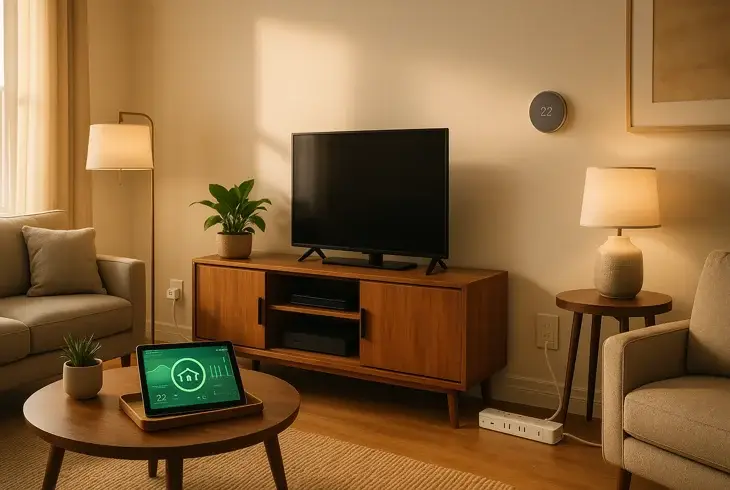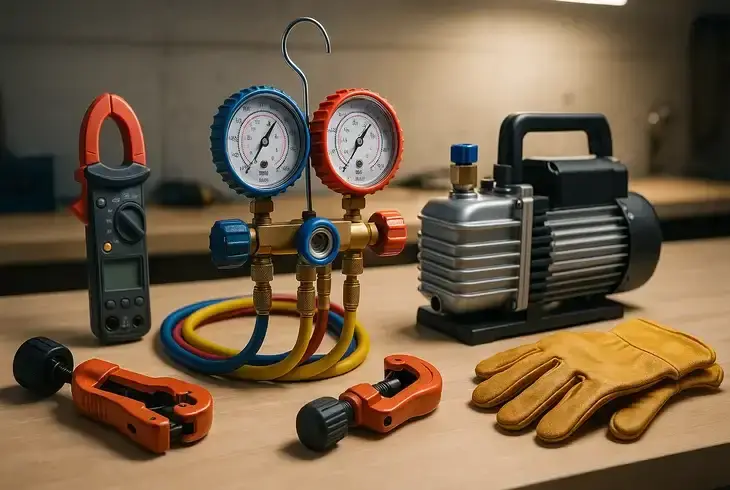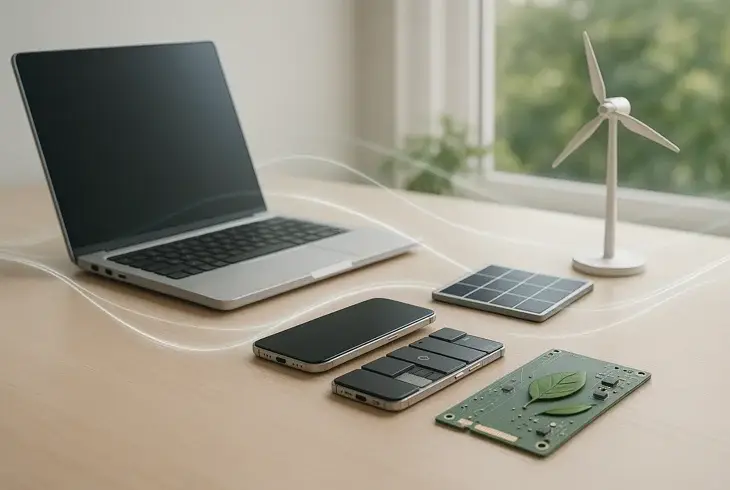How Can We Save Energy at Home Simple Tips and Strategies
Last Updated: May 4, 2025

How can we save energy? We can save energy by making simple changes at home and in daily routines, such as using LED bulbs instead of old incandescent lights, turning off unused electronics, and improving home insulation. These actions reduce electricity use and lower your utility bills without sacrificing comfort.
In this guide you will learn why saving energy matters and find easy practical tips to save electricity at home, from lighting and appliances to heating and cooling.
Why Saving Energy Matters
Saving energy is important for both your wallet and the planet. The average US household spends about Saving energy is important for both your wallet and the planet. The average U.S. household spends about $2,000 a year on energy bills. By cutting waste you keep more money in your pocket and reduce pollution. The residential sector uses about 20% to 21% of the country's total energy and generates around 20% of greenhouse gas emissions. In fact, heating and cooling alone account for over half of home electricity use. Making your home more energy efficient helps your budget and the environment.
| Energy Use Category | Share of Home Electricity Use |
|---|---|
| Heating & Cooling (HVAC) | 54% |
| Appliances & Electronics | 23% |
| Water Heating | 16% |
| Lighting | 4% |
| Refrigeration | 4% |
How Can We Save Energy at Home
Swap to LED Lighting
Replace old bulbs with LEDs. Modern LED bulbs use about 75% to 90% less energy than incandescent bulbs and last much longer. Even though LEDs cost more upfront they pay for themselves over time through lower bills.

Turn Off and Unplug Devices
Electronics draw power when plugged in even when switched off. These "phantom loads" waste 5% to 10% of residential energy use. Use smart power strips or unplug devices when they are not in use to stop this standby energy loss.

Adjust thermostats and HVAC.
Heating and cooling usually use the most energy in a home. Lowering your thermostat by 1°F in winter can cut your heating costs by about 3%, and raising it a few degrees in summer saves similarly. Use a smart or programmable thermostat to adjust the temperature automatically when you're away or asleep. Smart thermostats can save around 8% on heating and cooling bills by optimizing schedules.

Maintain HVAC Systems
Change furnace and air conditioning filters regularly and get a yearly tune up. A clean, well maintained heating/cooling system runs more efficiently and uses less electricity.
Use energy efficient appliances.
When it's time to replace an old appliance, look for the ENERGY STAR label. ENERGY STAR rated refrigerators, washers, and other appliances use roughly 10% to 15% less energy than standard models. Running full loads, washing clothes in cold water, and air drying laundry also cut electricity use.
Optimize Water Heating
Water heating can account for up to 18% of a home's energy use. Set your water heater to about 120°F, insulate the tank and hot water pipes, and fix any leaks. Installing low flow showerheads and faucet aerators also reduces the hot water needed. These steps can save hundreds of dollars a year.
Use Natural Energy Sources
Let sunlight in on sunny winter days to warm your home. In summer, use shades, awnings, or plant trees to block hot sun and keep your home cooler. Ceiling fans and good ventilation can also cut down on air conditioner use. These strategies reduce reliance on electric heating and cooling.
Behavior Changes to Conserve Electricity
Small daily habits make a big difference:
- Lights and screens:: Turn off lights when you leave a room and use natural daylight whenever possible. Many devices (TVs, computers, chargers) can be powered down fully at night instead of left in standby mode. Installing motion sensors or timers on outdoor lights ensures they only run when needed.
- Unplug smartly: Even chargers and plugged in appliances draw power when idle. Unplug phones and gadgets once they're charged, and switch off power strips at bedtime.
- Laundry and cooking: Wash clothes in cold water and only run dishwashers or laundry machines with full loads. Air dry dishes and clothes whenever practical. Cook with lids on pots and use the microwave or toaster oven for small meals (they use less energy than a full size oven).
These everyday choices answer questions like "how can we save electricity at home easily?" The key is to use power more thoughtfully and waste less.
Home Energy Audit
To reduce electricity consumption even more, consider a professional home energy audit. An auditor will inspect your home for energy leaks and inefficiencies. A typical audit might include:
- Inspecting the exterior: Checking walls, windows, and the roof for leaks, cracks, or poor insulation.
- Checking the attic and walls:Looking for missing or uneven insulation and sealing air gaps around ductwork and wires.
- Examining HVAC and water heaters: Ensuring heating/cooling systems and water heaters are sized properly, sealed, and running efficiently.
- Testing with equipment: Using a blower door test and infrared camera to locate hidden air leaks around doors, windows, and other areas.
Following an audit's recommendations (like adding insulation or sealing ducts) can typically save 5% to 30% on your energy bills. This is often worth the cost, as it pays off in long term savings and increased comfort.
Conclusion
In summary, we can save energy by combining efficient technologies with smarter habits. Use LED lighting, energy saving appliances, and advanced controls like smart thermostats. Insulate your home and set your thermostat wisely. Most importantly, turn off and unplug devices when not in use. Even small steps, like washing clothes in cold water or planting a shade tree, add up. These actions answer "how can we save energy" in practical ways that cut your electricity use and help the environment.
Take action today Check your last utility bill set a timer on your thermostat or swap a bulb for an LED. Every change counts.
For more advice explore our guides on energy efficient appliances energy efficient lighting and renewable energy options.
Frequently Asked Questions
How can I save electricity at home easily
Turn off lights unplug devices and switch to LED bulbs. Use a smart power strip and adopt habits like air drying clothes.
Do energy efficient appliances really make a difference
Yes ENERGY STAR appliances use less power. A new refrigerator for example can use ten to fifteen percent less electricity than a standard model.
Can adjusting my thermostat save money
Lowering heating by one degree saves about three percent on heating bills. A smart thermostat automates this for greater savings.
Why is saving energy important
Saving energy reduces costs lowers pollution and eases demand on the grid leading to cleaner air and a more stable climate.
How much can I save by insulating my home
Proper sealing and insulation can cut five to thirty percent from heating and cooling costs saving hundreds of dollars each year.






